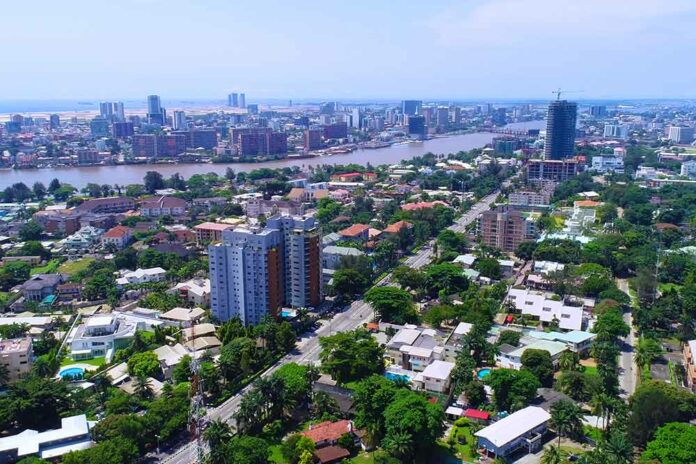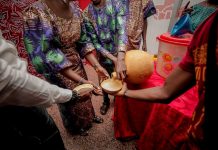Nigeria
• Deposit Money Banks in Nigeria have issued a deadline of December 31, 2021 for the acceptance of old £20 and £50 notes to enable proper conclusion of cash evacuation.
• The Securities and Exchange Commission (SEC) has put the total pension of Assets under Management (AuM) at N7.79 billion as at September 2021.
• The Governments of Cote d’Ivoire and Nigeria signed nine bilateral agreements in a ceremony held in Abidjan, Cote d’Ivoire. The agreements are intended to enhance bilateral cooperation between Cote d’Ivoire and Nigeria in key sectors such as defence, technical assistance, migration and the digital economy, among others.
• The Federal Executive Council (FEC) has approved the National Development Plan (NDP) for 2021 to 2025 to succeed the Economic Recovery and Growth Plan (ERGP) which expired in December 2020.
• Zainab Ahmed, Minister of Finance, Budget and National Planning, disclosed that the NDP was structured along with six clusters – Economic growth and development, Infrastructure, Public administration, Human capital development, Social development and regional development. The minister said that the plan had been costed to have an investment size of N348.7 trillion over the five-year period.
• The Central Bank of Nigeria (CBN) has flagged off the first ever rain-fed wheat programme in the country, which aims to slash the importation of the commodity by 60 per cent in two years. The initiative is also expected to save the country $2 billion annually in foreign exchange. According to the CBN Governor, the programme would be implemented in 15 states on about 180,000 hectares of land.
• The Central Bank of Nigeria (CBN) has set a maximum threshold of N5 billion to be accessed by an obligor under its new financial instrument, tagged, 100 for 100 Policy on Production and Productivity (100 for 100 PPP) which was introduced recently. The bank added that any amount above the limit shall require the special approval of CBN’s management. According to the guidelines for the implementation of the policy, the interest rate under the intervention shall be at not more than 5% per annum all inclusive, up to February 28, 2022, after which interest on the facility shall revert to 9% effective from March 1, 2022.
• The federal government officially launched the Opening Extractives Programme (OEP), a global five-year scheme to unveil the real owners of assets in Nigeria’s oil, gas and mining sectors. To be jointly implemented by the Extractive Industries Transparency Initiative (EITI) and Open Ownership, the initiative was introduced to accelerate the progress of beneficial ownership transparency in selected resource-rich countries.
Ghana
• According to a statement issued by Finance Minister Ken Ofori-Atta during an interview with the Bloomberg news publication on November 5th, 2021 the government is considering repealing a tax scheme imposed on small-scale gold mining operations. First introduced in May 2020, the scheme increases the tax rate on gold exports by small miners by 3%. According to Ofori-Atta, the imposition of the tax scheme resulted in smaller miners smuggling gold out of the country instead of using official channels. This, in conjunction with the Coronavirus pandemic-related factors, saw Ghana’s official Gold production drop by roughly 14%.
• Ghanaian revenue authorities plan on introducing a digitised tax system which will improve compliance and subsequently boost domestic revenue collection. This announcement came during a speech by Vice President Mahamudu Bawumia at Ashesi University in the Eastern region. Ghana has a major challenge in domestic revenue mobilization with a tax-to-GDP ratio at 14.3%, compared with 27% for a peer country such as South Africa and 34% in advanced economies, Bawumia said.
Uganda
• President Yoweri Museveni is counting on TotalEnergies SE and Cnooc Ltd. to produce oil from its fields in four years, laying the foundation for a new regional fuel hub. Uganda aims to reach a daily output of 230,000 barrels, and while that is less than what Nigeria pumps, it will make Uganda bigger than some OPEC members on the continent. According to Museveni, output starting by 2025 was agreed on with the oil companies, referring to his pact with the French and Chinese explorers. Museveni added that nothing is pending for the government regarding starting production, and a final investment decision will be announced “soon”.
• The Finance Ministry reported that Uganda’s external debt servicing costs jumped by more than half in 2020/2021, driven by payments on Chinese project loans. Uganda’s foreign debt expenses increased by 55% to $436.2mn in the year through June from the previous period. The Ministry added that this “was on account of increased principal and interest payments for major flagship projects like Karuma and Isimba hydropower projects.” The 600-megawatt Karuma plant, Uganda’s largest hydropower project whose completion was delayed until June 2022, and the 183-megawatt Isimba station were funded with loans from China.
Kenya
• The International Monetary Fund (IMF) has reached a staff-level agreement on the disbursement of USD($)264mn to Kenya. As per reports from November 6th, 2021 the agreement follows a review of Kenya’s performance under the ongoing Extended Credit Facility and Extended Fund Facility. During the reviews, the fund found that Kenya had fulfilled their reform objectives including outperforming fiscal targets for the 2021/2022 financial year. The fund also commended Kenya’s economic rebound, which has been facilitated by a modest vaccination programme and the opening up of the domestic economy.
• According to Bloomberg reports citing sources close to the matter, Kenya has named JP Morgan and Citi as lead arrangers for its first-ever sovereign green bond sale. Kenya plans to begin roadshows next month for the bond, targeting to raise as much as $700mn by the end of December 2021. Proceeds will be used to finance climate-friendly projects in the national budget, according to the nation’s sovereign green bond framework. The national treasury will start a green-bond register for the allocation of funds to eligible assets. Kenya will join Nigeria and Seychelles as the third Sub-Saharan Africa nation to sell green bonds in the last three years.
Read Also: Business Insights, Market Trends & Policy Changes
Tanzania
• Oil firms and the government are currently engaged in negotiations over the former’s alleged financial loss incurred as a result of a fuel price increase suspension imposed in September, according to a statement by authorities. After the suspension in September, a committee – populated by members of the energy ministry, the Tanzania Revenue Authority and the country’s energy authority – was established to evaluate the sustained rise in petroleum prices in the preceding three months.
• The committee recommended that to prevent a further escalation in the price of petroleum products, the government should reduce levies and other charges by TZS102 billion per year. The recommendation was subsequently approved by President Samia Suluhu Hassan and came into effect in October, 2021. According to the Energy and Water Utilities Regulatory Authority (EWURA), there should not have been any loss for oil firms, as they were paid the original rates prior to the suspension. Accordingly, EWURA has requested that the firms produce evidence to show the exact losses incurred.
Gambia
Finance Minister Mambury Njie delivered the 2022 budget speech in parliament on October 28th, 2021. Njie projected that revenue for 2022 will increase by 16% to GMD 17.6 billion compared to the current year. This is reportedly due to improving efficiency in revenue collection and to a reduction of customs and duty waivers. According to Njie, as a result of the government’s fiscal consolidation efforts, expenditure should increase by slightly less than 2 percent% in 2022 to GMD 32.2 billion. This is due to general cuts to current expenditure, as well as a rolling back of coronavirus-related health spending.
Guinea
The United States (US) announced on 01 November, 2021 its intention to suspend Guinea from the tariff-free African Growth and Opportunity Act (AGOA). The US cited the 05 September military coup as the rationale behind the decision. Guinea’s suspension from the programme will come into effect as of 01 January 2022. Further details on the suspension were not provided, and no official statement from transitional authorities was available in response. That said, the move is unlikely to have any material impact on Guinea’s wider economic prospects, given that the US is one of the country’s smallest trade partners.
Zambia
• The Minister of Finance, Dr. Situmbeko Musokotwane, presented his maiden budget under the new dawn government on Friday. The budget was aptly themed ‘Growth, jobs and taking development closer to the people’ as the Minister proposed to spend c. K173 billion, a 45% increase on the c. K119 billion proposed for 2021, with a view to achieve an economic growth target of 3.5%. Some key measures included a proposal to hire 30,000 teachers as well as 11,000 health workers, an increase in the Constituency Development Fund (CDF) from K1.6million per constituency to K25.7million, in line with the goal to take development closer to the people.
• Secretary to the Treasury, Felix Nkulukusa, announced on 01 November, 2021 that talks with the International Monetary Fund (IMF) over the possibility of securing a lending programme will resume on 03 November, 2021. As per Nkulukusa, the discussions are expected to last for November. The government is confident that the finance ministry will come to an agreement with the IMF and that a lending programme and framework for debt restructuring will be agreed upon in the coming months.
At UBA, we offer corporate banking services to help with your day-to-day business needs.




























